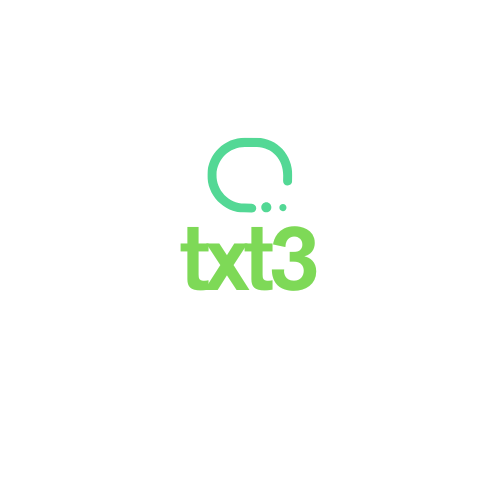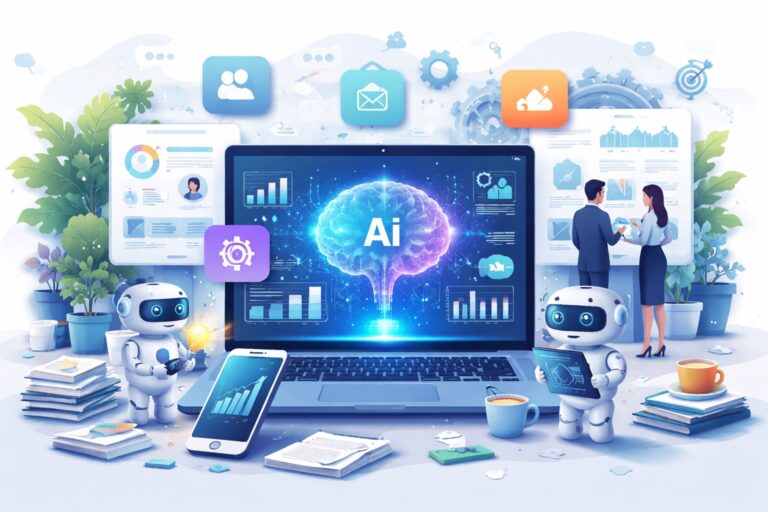Artificial intelligence is quietly changing the way we work. This transformation, although technological, directly impacts people, companies, and professions. Let’s take a closer look.
The rapid advancement of AI is no longer a futuristic promise but a reality already present in various sectors. Once met with skepticism, it is now in offices, factories, and even medical clinics.
In this article, we will explore how this technology affects different areas of the job market, who can benefit, who needs to adapt, and what to expect in the coming years. Keep reading to understand what lies ahead.
What Is Artificial Intelligence (AI)
Artificial intelligence is a field of computer science that aims to create systems capable of performing tasks that typically require human intelligence. This includes speech recognition, decision-making, language translation, and more.
The concept of thinking machines emerged in the 20th century, but significant advances have occurred over the past two decades, especially with the rise of machine learning and deep learning.
These technologies have enabled algorithms to process large volumes of data, identify patterns, and make decisions based on them—with minimal or no human intervention.
Recent Advances in AI
In recent years, AI has made significant strides thanks to cloud computing, increased processing power, and the availability of large-scale data. Some notable innovations include:
- Virtual assistants (such as Siri, Alexa, and Google Assistant)
- Corporate chatbots and automated customer service
- Generative AI for text, images, and code
- Facial recognition and biometric security
- AI-assisted medical diagnostics
These advancements have not only boosted operational efficiency but also begun replacing routine and repetitive tasks across various industries.
Sectors Most Impacted by AI
AI is reshaping entire industries. The most affected so far include:
- Manufacturing: automation of production lines with intelligent robots
- Healthcare: highly accurate image-based diagnostics
- Finance: risk analysis, fraud detection, and automated investment management
- Retail: personalized offers and demand forecasting
- Transportation and logistics: route optimization and delivery predictions
While these changes increase productivity, they also require professionals to adapt.
Jobs at Risk and Jobs on the Rise
AI tends to replace repetitive and predictable functions. Jobs at risk include:
- Telemarketing operators
- Administrative assistants
- Cashiers
- Conventional transport drivers
On the other hand, jobs in technology and creativity are thriving, such as:
- AI engineers and data scientists
- Cybersecurity specialists
- User experience (UX) designers
- Mental health and human care professionals
- Digital learning instructors and facilitators
The key lies in developing skills that machines cannot yet replicate accurately, such as empathy, creativity, and critical thinking.
Reskilling as a Response to AI Advancement
With the automation of repetitive roles, there is an urgent need to invest in professional reskilling. This means learning new skills aligned with the transformations brought by artificial intelligence.
Online learning platforms such as Coursera, edX, and Udemy offer courses in fields like data science, process automation, programming, and digital marketing. Moreover, human skills—leadership, critical thinking, and communication—become even more valuable.
Companies and governments also play a crucial role by offering training programs and digital inclusion initiatives to prevent technological exclusion from deepening social inequalities.
The Role of Companies in Adaptation
Organizations must not only adopt new technologies but also foster a cultural shift. This includes:
- Training employees to work alongside AI systems
- Encouraging internal innovation and continuous learning
- Implementing technologies ethically and transparently
Companies that adopt AI responsibly can boost productivity without sacrificing employee well-being. Success depends on balancing efficiency with empathy.
Opportunities Created by AI
Despite the risks, artificial intelligence is also creating new job and business opportunities. Entire sectors are emerging or expanding with the help of technology:
- AI-driven startups: specialized solutions for healthcare, education, logistics, and more
- Data market: analysis, security, visualization, and governance
- Creative economy and digital content: video, text, and image production supported by AI
- Smart product development: home appliances, autonomous cars, wearable devices
Additionally, more flexible work models are emerging, such as remote work with AI assistance, digital freelancing, and micro-entrepreneurs leveraging AI tools to scale their businesses.
Ethics and Responsibility in AI Usage
As AI adoption grows, so do ethical concerns. Key issues include:
- Algorithmic bias: automated decisions that may reinforce inequalities
- Data privacy: misuse of sensitive information
- Transparency and accountability: understanding how and why an AI made a particular decision
It is crucial for companies, governments, and developers to follow clear ethical principles—fairness, accountability, explainability, and security—to ensure technology benefits society as a whole.
The Future of Work and Emerging Trends
The transformation is ongoing. In the coming years, we can expect:
- Collaborative AI to become common, working alongside professionals rather than replacing them
- Hybrid jobs (human + AI) to become the norm in areas like customer service, creation, and engineering
- New professions to emerge, such as AI curators, prompt engineers, and model trainers
- Digital workplaces to take center stage, with immersive platforms and extensive automation
The professional of the future will be someone who is constantly learning and knows how to use technology to their advantage.
Conclusion
Artificial intelligence is already transforming the job market and will continue to do so rapidly and profoundly. While it creates uncertainties and challenges, this transformation also brings countless opportunities.
To stay relevant, it is essential to invest in continuous education, adapt to new demands, and learn to work alongside machines. At the same time, companies and governments must act responsibly to ensure a fair and balanced transition.
The future of work is being built now—and every professional can play an active role in this change.
Frequently Asked Questions (FAQ)
1. Will artificial intelligence eliminate all jobs?
No. AI tends to replace some roles but also creates new opportunities. The job market will transform, not disappear.
2. How can I prepare to work with AI?
Take online courses, develop digital and human skills, and stay updated on trends in your industry.
3. Which areas are most promising with AI adoption?
Technology, data analysis, digital healthcare, automation, marketing, logistics, and information security stand out.
4. Is AI safe? Can I trust it?
It depends on its use and governance. The more transparency and ethics involved, the greater the trust.
5. How do I know if my job is at risk?
If it is highly repetitive and pattern-based, it is more vulnerable to automation. Focus on incorporating human value into your work.



